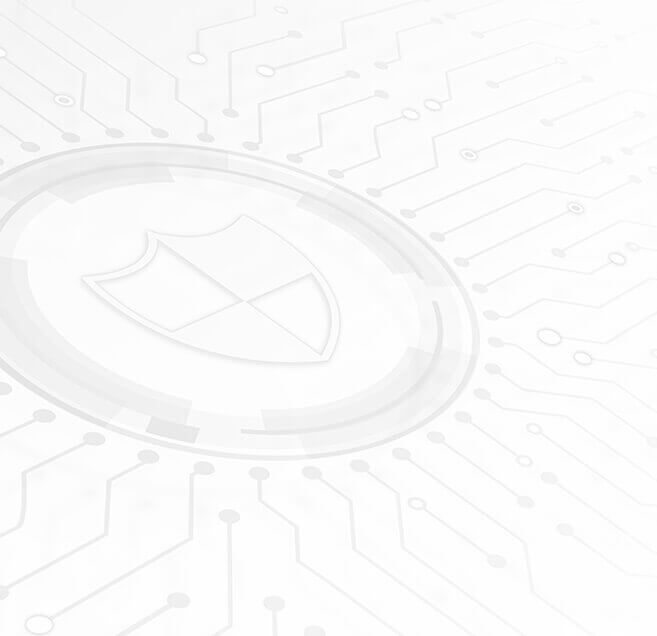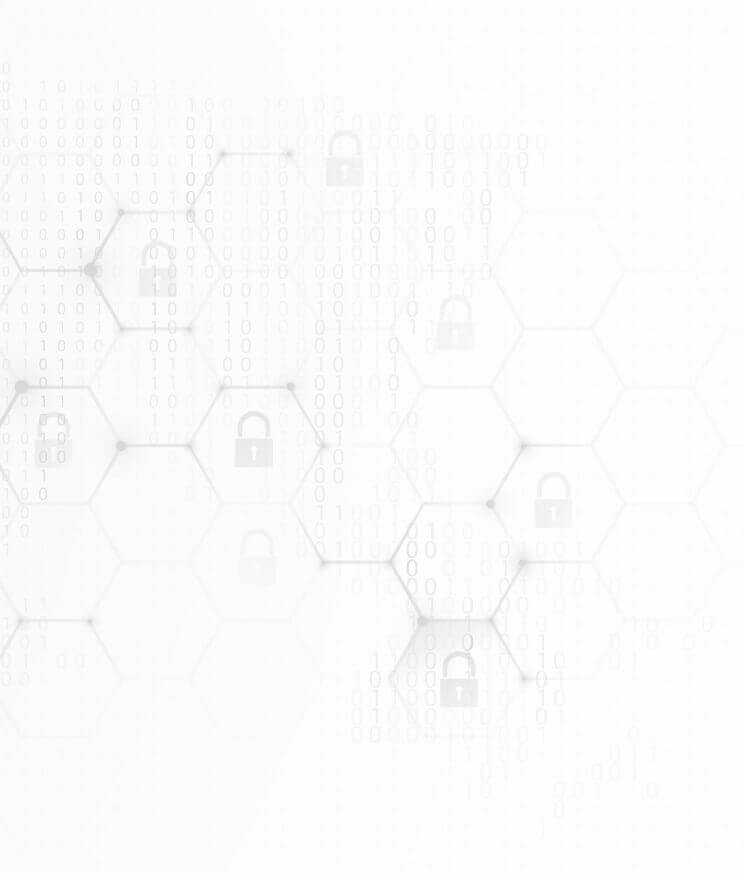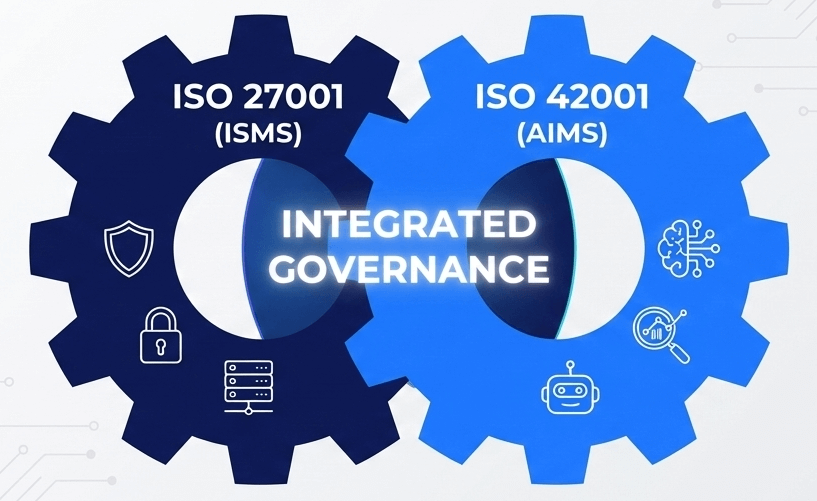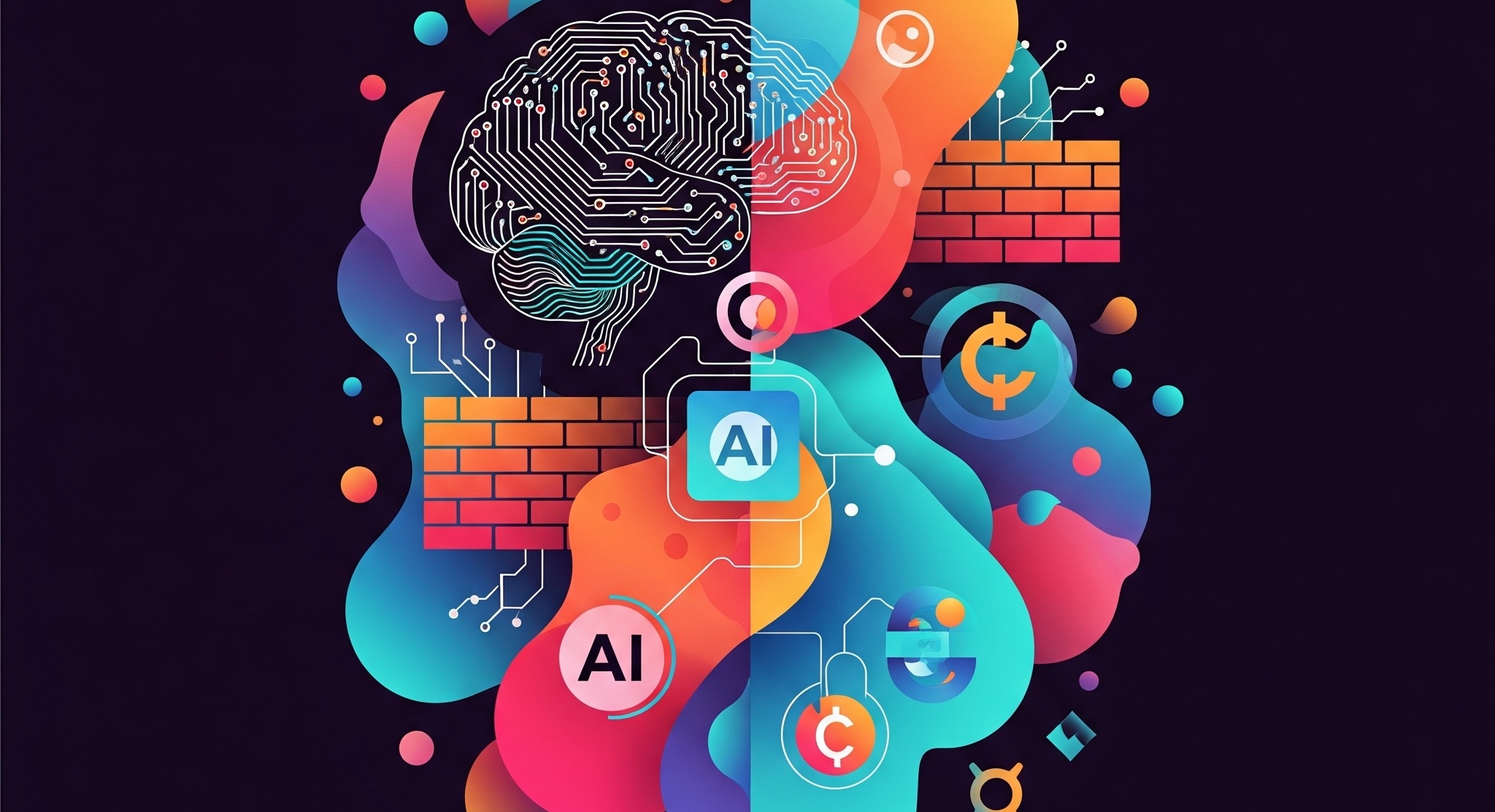
Businesses are increasingly reliant on robust information security and, for many, the transformative power of Artificial Intelligence (AI). This has led to the emergence of new international standards designed to help organisations manage these critical areas. While both ISO 42001 (AI Management System) and ISO 27001 (Information Security Management System) aim to mitigate risks and contribute to strong organisational governance, they address fundamentally different aspects of a business’s operations. Understanding their distinct purposes is crucial for any business deciding which standard, or both, to pursue.
For most businesses, ISO 27001 remains a fundamental requirement. Establishing a robust ISMS is non-negotiable for protecting your assets and maintaining customer trust in an increasingly threat-filled cyber environment.
However, if your business is engaging with AI in any meaningful way, then ISO 42001 becomes increasingly important, if not essential.
What are the key differences between ISO 27001 and ISO 42001?
| ISO 27001 | ISO 42001 |
| Focused on Information Security | Focused on Artificial Intelligence |
| Securing Assets Pertains to Information Security Management Systems (ISMS), providing a framework for keeping information assets secure across various technologies. |
Accountability in AI use Covers AI management systems, emphasising ethical use, transparency, and accountability in AI operations. |
| General Information Risks Covers general information security risks like unauthorised access and data breaches. |
AI-Specific Risks Introduces AI-specific controls and considerations, like bias detection and fairness in AI decision-making. |
| Broad approach to risk management Adopts a broad approach to risk management, safeguarding information assets against various threats without specific emphasis on AI. |
Specific AI risk management Provides a risk management framework to address unique AI risks including potential misuse of AI technologies. |
| Secures Information Systems Establishes a foundation for securing information systems. |
Focused on unique AI risks Builds upon ISO 27001 principles by focusing on the unique risks and ethical considerations of AI technologies. |
These standards are complementary, not mutually exclusive. ISO 27001 provides the secure foundation upon which AI systems can operate. After all, if the data feeding your AI is not secure, or the AI system itself is vulnerable to attack, the benefits of responsible AI development diminish significantly. A holistic approach may involve:
- Establishing ISO 27001 certification: This ensures your core information assets are secure, creating a trusted environment for all digital operations, including AI.
- Implementing an ISO 42001-aligned AIMS: This builds upon your security foundation by specifically addressing the ethical, transparent, and accountable use of AI, mitigating the unique risks associated with these powerful technologies.
By strategically implementing both ISO 27001 and ISO 42001, businesses can not only safeguard their information but also harness the power of AI responsibly, fostering innovation while maintaining trust and minimising unforeseen risks.
How do I know if I need ISO 42001?
Organisations using or developing AI systems should consider ISO 42001, especially those in regulated industries, deploying high-stakes AI applications, or facing stakeholder pressure for responsible AI practices. Even if not mandated, it can offer a proactive approach to managing AI risks and enhancing trust in AI systems.
What are the steps required to get ISO certifications?
Mondas has consultants who can assist your organisation in conducting a GAP assessment. This evaluation will compare your current outcomes against your broader business goals and help produce a compliance plan. This plan will aid your organisation in implementing ISO, whether standalone or integrated into existing processes.
The cost of certification varies and consists of several factors including the initial research, management system audit and monitoring, training and awareness and more
With Mondas, you can begin a 7-day zero cost trial for up to two compliance frameworks and identity access reviews, with no obligation. During your trial you will see a clear route on what your business needs to do to become compliant.
Mondas help organisations achieve ISO/IEC certifications. By working with Mondas you can establish clear policies, implement stringent controls, and proactively address the unique risks posed in data security and AI.
Read more about how Mondas approach regulatory frameworks here: ISO 27001, ISO 42001, ISO 27701.





